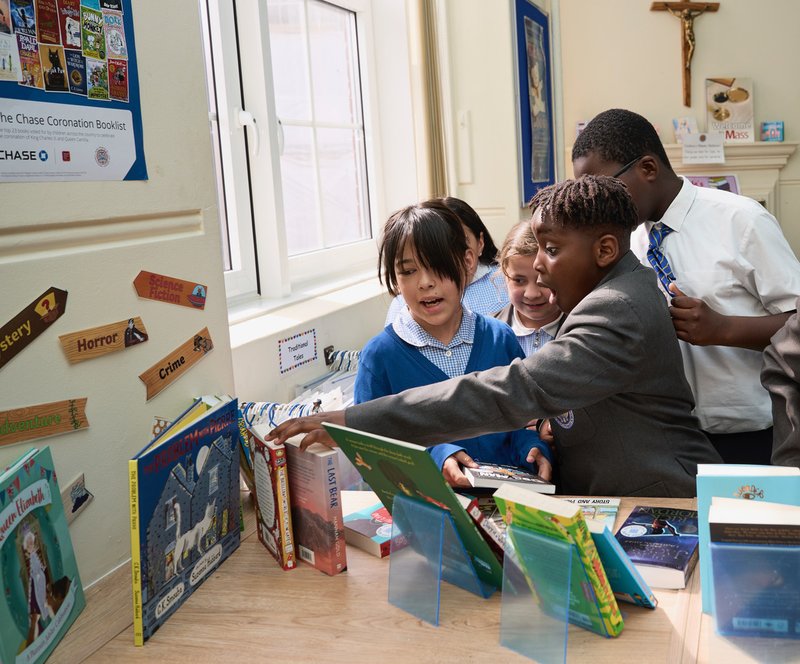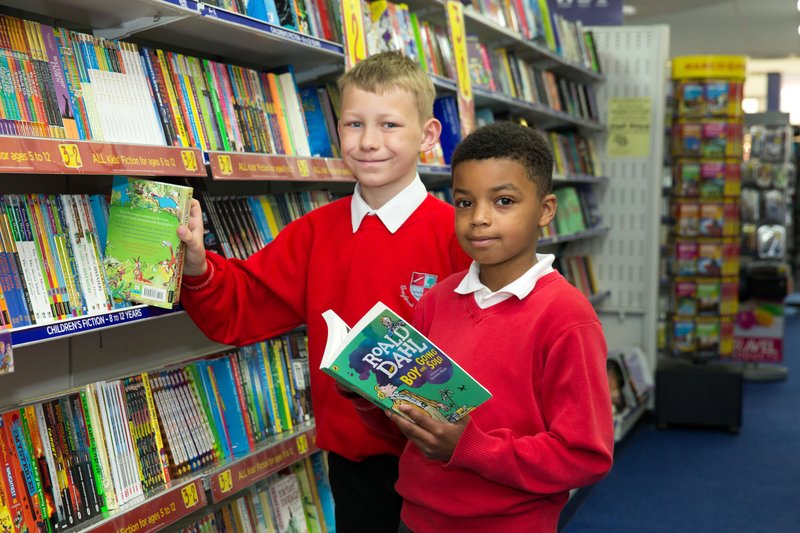
Founded in November 2021 by the National Literacy Trust and Penguin Random House, the Primary School Library Alliance is a group of organisations who work to address the lack of investment in primary school libraries and bring together relevant parties to help solve this urgent issue. The campaign will now be known as Libraries for Primaries.
As part of the launch of our Libraries for Primaries campaign, we are publishing two key research reports:
- An updated evidence review of the need for and impact of school libraries
- The evaluation of three of our key school library programmes
Evidence review
The value of school libraries is well-established, with reviews and studies worldwide highlighting the impact on children and young people's academic achievement and literacy outcomes. Yet, it is still not a statutory requirement for schools to have a school library or school library system. As such, there are no official figures as to the number or proportion of schools that have a school library or school librarian in the UK.
This report builds on our earlier review (Teravainen & Clark, 2017), and contributes to other recent reviews, to provide an up-to-date picture of both primary and secondary schools in the UK. It focuses on what is known about the extent of current school library provision, the evidence of the need for further support of school libraries, and the impact that school libraries can have on children and young people.

School library programme evaluation
The National Literacy Trust ran four separate programmes designed to support primary school libraries during the academic year 2022-23: World of Stories, Chase School Library Programme, OUP Raise a Reader, and Get Islington Reading. This report presents the evaluation of the first three of these programmes.
Overall, this evaluation shows that the school library programmes have had a positive impact on the quality of reading materials, diversity of authors, topics and characters, and the confidence of practitioners in their ability to create an engaging library space. The improved provision was found to be especially important in providing book access for children during the cost-of-living crisis. Practitioners reported an increase in their understanding of how to promote reading for pleasure across their school, as well as their confidence to do so. Nearly all practitioners told us that they plan to continue improving their school library or reading space going forward, and that their school has invested more time and funds into their library as a result of participating in the school library programme.
The school library programmes also had a positive impact on children within the school. Immediately after the delivery of the programmes, children showed improvements in their perception of their school library, identifying that these changes encouraged them to engage with their school library or reading space more than before. This positive impact was sustained over time, with analysis of pupils one year later showing improvements in their enjoyment of reading and their confidence as readers.